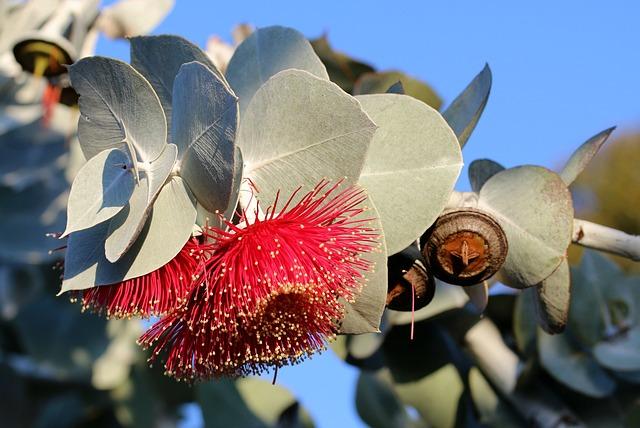- Introduction
- Benefits of Eucalyptus
- Common Uses of Eucalyptus
- Environmental Impact of Eucalyptus
- Preservation and Future of Eucalyptus
- Conclusion
- FAQs
- References
Introduction
Eucalyptus is a fascinating genus of trees and shrubs that has gained attention not only for its distinct aroma but also for its numerous benefits and applications. Whether it's the advantageous properties in traditional and modern medicine or its uses in household products, eucalyptus is a versatile plant. However, like all natural resources, it presents environmental considerations. Throughout this article, we will dive deep into the benefits and applications of eucalyptus, discuss its environmental footprint, and finally, explore possibilities for its future preservation.
This guide covers:
- The health and wellness benefits of eucalyptus.
- Various common uses for eucalyptus in everyday life.
- The environmental impacts caused by widespread eucalyptus cultivation.
- Future recommendations on how we can balance eucalyptus conservation with its growing usage.
Benefits of Eucalyptus

(Image: Pixabay/@ekaterinvor)
Eucalyptus is known for its plethora of health-related properties, which make it popular in aromatherapy, herbal remedies, and pharmaceutical products. Below are some notable benefits that make eucalyptus a superstar in the wellness world:
1. Respiratory Health
Eucalyptus oil and leaves have long been employed to reduce the symptoms of colds and congested sinuses. Acting as a natural decongestant, inhaling eucalyptus vapor opens airways, alleviating conditions such as asthma and bronchitis. Its antilogous properties help reduce inflammation and improve breathing during cold seasons.
2. Antibacterial and Anti-inflammatory Properties
The antimicrobial properties of eucalyptus oil make it ideal for killing bacteria. This is why you’ll find eucalyptus oil in mouthwashes, where it helps to disinfect gums and teeth while promoting oral health. The anti-inflammatory properties extend to skin care, where it helps in reducing skin irritation and puffiness.
3. Mental Clarity and Stress Relief
Eucalyptus is a prominent component in aromatherapy. Its refreshing scent promotes mental clarity, boosts energy levels, and provides a calming influence after a stressful day. Breathing in eucalyptus-scented air can even reduce anxiety and elevate mood.
Common Uses of Eucalyptus

(Image: Pixabay/@pieonane)
The versatility of eucalyptus allows it to be used in a wide array of settings. From personal care to industrial applications, its usefulness seems boundless. Let us explore some common uses:
1. Medicine and Pharmaceuticals
Long known in traditional medicine, eucalyptus oil now features in several pharmaceutical products. It's used as a key ingredient in cough drops, topical creams for muscle relief, and antiseptics. Its popularity in alleviating cold symptoms has transformed eucalyptus into a staple for healthcare brands worldwide.
2. Aromatherapy
As mentioned earlier, eucalyptus oil serves as a natural tool for clearing the mind, reducing stress, and improving focus through aromatherapy sessions. Whether applied topically or diffused through mist, the calming effects are undeniable.
3. Eco-friendly Cleaning Products
Eucalyptus oil is commonly found in environmentally friendly cleaning products. Since it’s biodegradable and non-toxic, it offers a great alternative to synthetic chemicals often found in commercial cleaning solutions. Its antibacterial traits help cleanse surfaces, making it suitable for anything from mop water to countertop sprays.
Environmental Impact of Eucalyptus

(Image: Pixabay/@Piyapong89)
Eucalyptus has both positive and negative environmental implications. On one hand, its fast-growing nature makes it an efficient source of biomass and renewable energy, contributing to carbon sequestration. On the other hand, there are concerns about its invasive nature and negative effects on biodiversity when planted outside its native regions.
1. Invasive Species Issues
When introduced into new environments, eucalyptus trees often outcompete local vegetation, suppress bio-diverse ecosystems, and disrupt water flow. Native plants may struggle to thrive near large stands of eucalyptus trees because they consume water at very high rates, sometimes starving nearby plants. This results in monocultures instead of balanced ecosystems.
2. Efficient Carbon Sequestration
One of the more positive points is that eucalyptus trees grow rapidly. This rapid growth helps absorb significant amounts of CO2, which is beneficial for combating climate change. Companies engaging in carbon offsetting projects often utilize eucalyptus plantations due to their superior carbon capture abilities.
3. Fire Hazard
Dry eucalyptus leaves contain volatile oils, which can turn trees into accelerators during wildfires. The naturally shedding bark can also accumulate on the ground, creating additional fuel for fires. This becomes especially dangerous in areas prone to wildfires.
Preservation and Future of Eucalyptus

(Image: Pixabay/@adawiyah10)
Given its prominence and widespread usage, preserving eucalyptus species for future generations while mitigating their negatively disruptive tendencies is crucial. Sustainability practices, responsible cultivation, and forestry management strategies need to take center stage.
1. Sustainable Farming Practices
In regions where eucalyptus is grown commercially, sustainable logging and replanting practices should be adopted to avoid damaging local ecosystems. These include responsible harvesting schedules, employing mixed-age tree populations, and maintaining underbrush biodiversity.
2. Habitat Restoration
Efforts to restore native habitats that have been disrupted by eucalyptus plantations can rejuvenate ecosystems. Restoring hydrological balances through managed deforestation and diversifying forests with native species are critical long-term initiatives.
3. Public Awareness and Education
Promoting awareness around the dual-sided nature of eucalyptus can help individuals and corporations make more environmentally informed decisions. Educational campaigns addressing responsible use and eco-friendly ways to harness its benefits can be an eye-opener for the industry and consumers alike.
Conclusion
Eucalyptus offers remarkable benefits across diverse spheres—ranging from health and wellness to industrial use. However, the plant’s globalized cultivation comes with environmental risks, including biodiversity loss and increased fire hazards. It's crucial that we balance its uses with careful management and sustainable practices, ensuring eucalyptus continues to benefit humanity without straining our ecosystems. Through mindful action, we can preserve the wonder of eucalyptus for generations to come.
FAQs
What is eucalyptus most commonly used for?
Eucalyptus is commonly used for respiratory treatments, as its essential oils help clear nasal passages and reduce congestion. It also has antibacterial and stress-relief benefits and is widely incorporated into cleaning products, medicines, and skincare.
Is eucalyptus oil safe to ingest?
No, eucalyptus oil should never be ingested orally in its pure form. Doing so can lead to severe poisoning. Always consult healthcare professionals if considering its use internally and ensure you follow product guidelines.
Are eucalyptus trees harmful to the environment?
Eucalyptus trees can become invasive species when not cultivated responsibly outside their native areas, potentially harming biodiversity. They also consume water excessively and may pose a fire hazard due to their oil-filled leaves.
Can eucalyptus be sustainably cultivated?
Yes, eucalyptus can be sustainably farmed using reforestation programs and responsible logging practices. However, such efforts need to be managed carefully to minimize the ecological impact.

